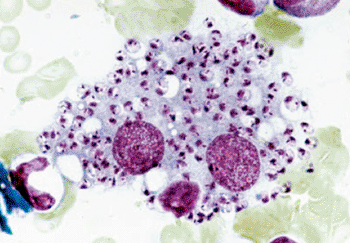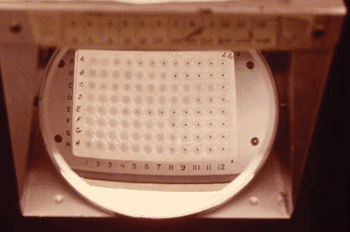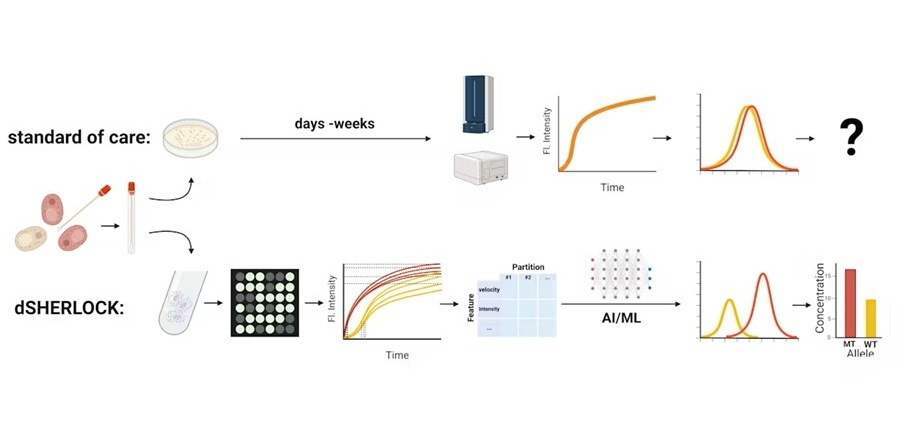Prototype Kit Diagnoses Visceral Leishmaniasis
By LabMedica International staff writers
Posted on 07 May 2013
A prototype direct agglutination test (DAT) kit for the laboratory diagnosis of visceral leishmaniasis (VL), called DAT-LPC, has been developed. Posted on 07 May 2013
The diagnosis validity of this prototype DAT-LPC, which uses a freeze-dried antigen, was performed to evaluate the sensitivity and specificity of the assay.
Scientists at the Oswaldo Cruz Foundation (FIOCRUZ; Belo Horizonte, Brazil) took blood samples from 103 Brazilian patients with VL and 110 samples from patients with other parasitic infections, and healthy subjects. These samples were assayed with DAT-LPC and DAT-KIT (Royal Tropical Institute; Amsterdam, NL). Additionally, the results of 103 samples of VL patients based on two agglutination tests were correlated.
The DAT-LPC was incubated for four hours at room temperature; the end titer was read as the dilution immediately before the well with a clear sharp-edged blue spot identical in size to the reaction negative control. Appropriate negative and positive control samples with known DAT titers were included. The cut-off for interpretation of positive and negative results was 1:100. The DAT-LPC showed a sensitivity of 99.0%, specificity of 98.2% and diagnosis validity of 98.6%, which were similar to those found by the DAT-KIT. Moreover, there was positive correlation between the positive titers obtained by DAT-LPC and by DAT-KIT.
After six months of storage in an incubator at 40 °C and 75% moisture the DAT-LPC prototype remained stable. Physical aspects remained the same, and it produced consistent results with negative and positive samples assayed monthly. The authors concluded that the prototype kit showed high diagnostic accuracy and thermal stability; it is ready for use and could be transferred to industrial production. The DAT-LPC should replace the indirect immunofluorescent antibody test (IFAT) in routine serological tests for VL diagnosis in Brazil. It could be used in a complementary algorithm with immunochromatic dipstick tests, for different clinical scenarios and laboratorial settings. The study was published on February 3, 2013, in the journal Transactions of The Royal Society of Tropical Medicine and Hygiene.
Related Links:
Oswaldo Cruz Foundation
Royal Tropical Institute















